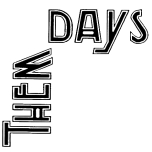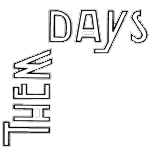FAQ
tdadmin2023-03-22T10:59:04-04:00Frequently Asked Questions about our Archives
Can I keep my items private?
tdadmin2021-07-12T15:11:36-04:00If you would like to donate items that you consider sensitive or private, we can look at the option of sealing the files for a specified amount of time. If that's the case, researchers will not be allowed to access the files until they are unsealed. They can not, however, be sealed indefinitely.
Will you buy my Item?
tdadmin2021-07-12T15:15:20-04:00Unfortunately, Them Days can not buy your item from you. We can, however, offer you a donation receipt for your original items that you may claim on your tax return.
Is Them Days stable?
tdadmin2021-07-12T15:11:22-04:00Yes. We have stable operational funding, and we own our own building outright. We've been around for over 40 years now--we're not going anywhere!
Will I ever see my donated items again?
tdadmin2021-07-12T15:10:01-04:00Our archive is open to the public and free to access. You and your family members will be able to access your items whenever we are open. We can also provide you with a digital copy or paper copy of your donation if you like.
Who uses your archive?
tdadmin2021-07-12T15:10:16-04:00Our archive is used by university researchers, students, writers, genealogists, and your average, everyday person who is just looking for information, usually about their family.
Do you take personal items only?
tdadmin2021-07-12T15:11:15-04:00No--we would love to see records from current or defunct businesses, community groups and organizations as well as individuals and families.
How will my items be stored?
tdadmin2021-07-12T15:16:30-04:00Your donated items will be stored in our climate-controlled, fire-safe archive and kept in archival quality storage. That means acid-free folders, polyester sleeves--whatever is best for the particular item in question. Our building is also protected by DBH Security.
Can I Visit?
tdadmin2023-03-22T10:51:47-04:00Sure! Our new reading room is comfortable for experienced researchers and amateurs alike. Whether you want to settle down and read Labrador books on our comfy couch, or get down and dirty with archival documents (with your clean/gloved hands, of course!), we're happy to help you out.
What Should I Know About Your Reading Room?
tdadmin2021-07-12T10:30:37-04:00Our reading room is open during our regular business hours (M-F, 8:30-4:30, closed for lunch from 12-1) and there are certain rules you should follow when using the reading room. Read them here. Don't let the rules scare you away though - they're plenty easy to follow!
Can I Have A Photo From The Archive
tdadmin2021-07-12T10:30:04-04:00Our standard rate is $25 plus tax per photo for a digital image. Special requests may be decided on a case-by-case basis by our Archives Committee. Some photos are restricted and can not be sold.
$25?! Thats A Lot Of Money! Why So Much?
tdadmin2021-07-12T10:29:38-04:00Them Days' $25 fee to purchase a digital copy of a photo is in-line with other archives around the province and the country. A lot goes into storing photos and keeping them organized. We pay for staff to scan them, for the equipment they are scanned on. They are kept on computers, which need to be backed up regularly, and the originals are kept in professional climate-controlled facilities. We also pay for cloud storage so that even if the building burns down or is washed away in a flood, the pictures still exist, digitally. We keep up-to-date finding aids that help us find exactly what you're looking for, and that takes staff time. If we don't have image identification, we do our best to track it down. We need to pay for electricity to keep the facilities stable, for staff time and expertise, insurance, security, archival storage materials, electronic equipment for backup, Internet access, etc. It isn't as simple as it seems at first glance. Your $25 fee does not line well-padded pockets--it keeps a non-profit organization open for the benefit of you and others.


